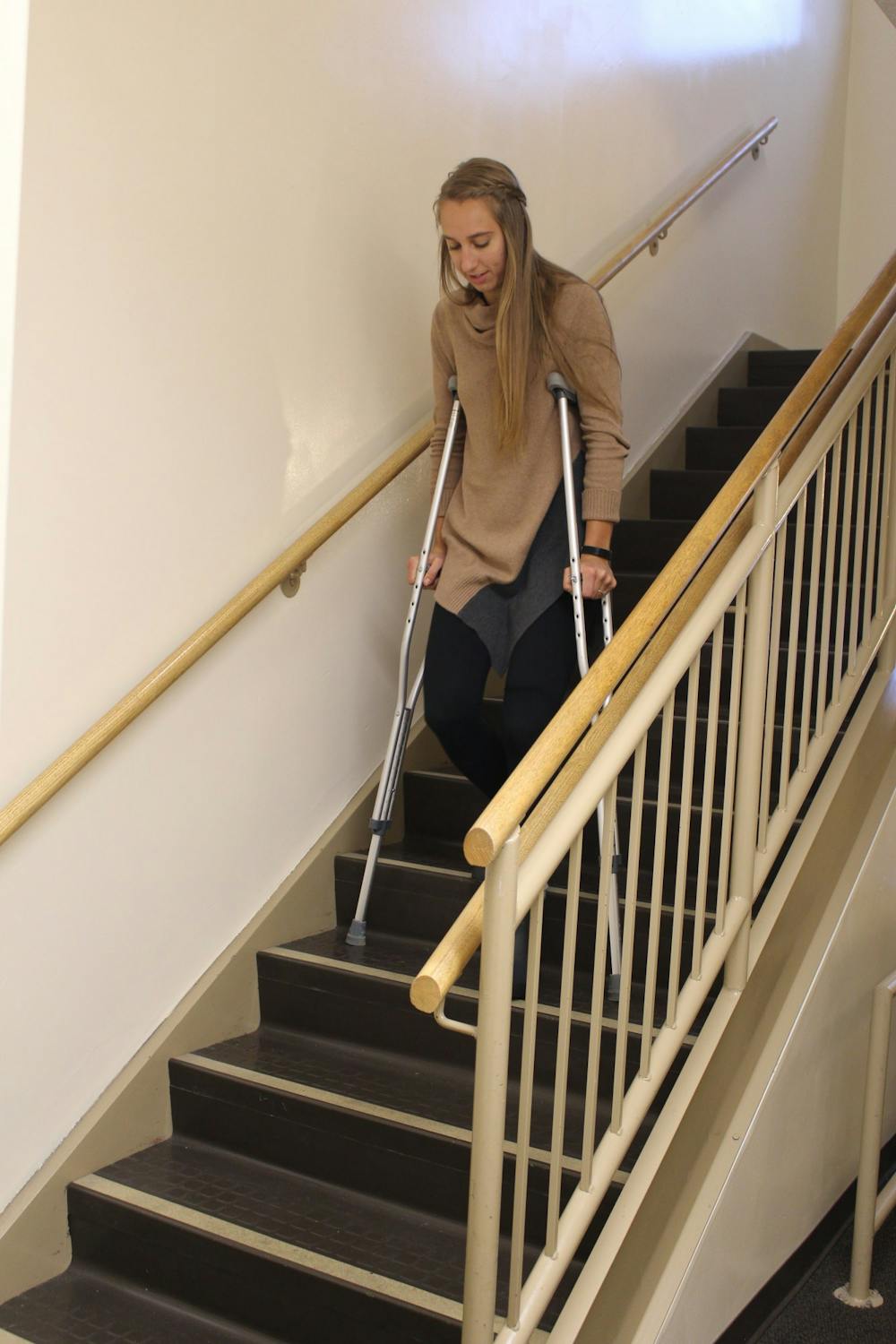How can we best serve our brothers and sisters in the Taylor community who have disabilities?
Ever since Taylor Theatre’s production of “Falling” earlier this semester, The Echo has been contemplating this question.
Seeing how each character interacted with the main character Josh — who has severe autism — helped us see the shortcomings of our own interactions with individuals on campus who have disabilities, physical or hidden.
While our mistakes or misconceptions are often the result of simply not knowing, we should always strive to do better. This starts with seeking to understand what reality is like for individuals with disabilities.
According to Associate Professor of English Dan Bowman — who is on the autism spectrum — often the challenges of living come when society at large does not accommodate those with disabilities, instead making snap judgements about an individual’s behavior.
“The world largely fails to understand how to support—or even interact with—autistic people,” Bowman wrote. “Often they mistake autistic bluntness, lack of eye contact, sensitivity to temperature or noise, or difficulty adjusting to changes in routine as indicators that autistics are rude, disinterested, or just difficult.
“Unsurprisingly, many people on the spectrum are depressed by the daily struggles of being misjudged. To be frank: suicide rates among autistic people, including college students, are nearly ten times higher than those of their non-autistic peers.”
While Bowman only spoke about autism, society has a tendency to make assumptions about individuals with disabilities, regardless of their disability.
Even though individuals may have a disability, this does not mean they can’t succeed in an academic environment like Taylor. With the help of resources like the Academic Enrichment Center (AEC), students who have disabilities ranging from autism and dyslexia to anxiety and depression can thrive.
“We have to realize that these individuals met all the requirements to come to Taylor and that overwhelmingly they're very bright individuals,” said Ken Taylor, assistant director of the AEC and coordinator of academic support. “The stereotype is that they haven't been able to do school work and things like that — no, these are bright people, they're delightful people.”
According to Taylor, in the past students with disabilities who had weekly appointments at the center had an average GPA of 3.73.
Taylor assists over 100 students who have chosen to disclose their disabilities, working with Lisa Wallace, AEC program assistant, to request accommodations such as note taking or taking tests in the AEC.
To help their students succeed, the AEC relies heavily on other students to volunteer as notetakers. For those who want to help assist their fellow students, volunteering as a notetaker is a great way to help, Taylor said.
“(We want to) encourage the students to advocate for themselves,” Wallace said. “Giving them ideas for other ways that they could access the information in class if they don’t have a notetaker immediately . . . or how to go about ways of providing for their own needs without relying on somebody else.”
For Taylor, this is part of ministry that can be neglected — helping our immediate neighbors.
Taylor recalled a former student on the spectrum who would always sit alone in the DC because the other students perceived him as different. While students planned for overseas missions trips, sitting with him and eating with him was also an essential ministering opportunity, Taylor said.
All it takes is a first step.
“No one expects you to walk on eggshells or get everything right,” Bowman wrote. “Just aim for greater knowledge and empathy. Listening to our stories… is a great start. Don't speak over us; instead, pass the mic and listen carefully.”




